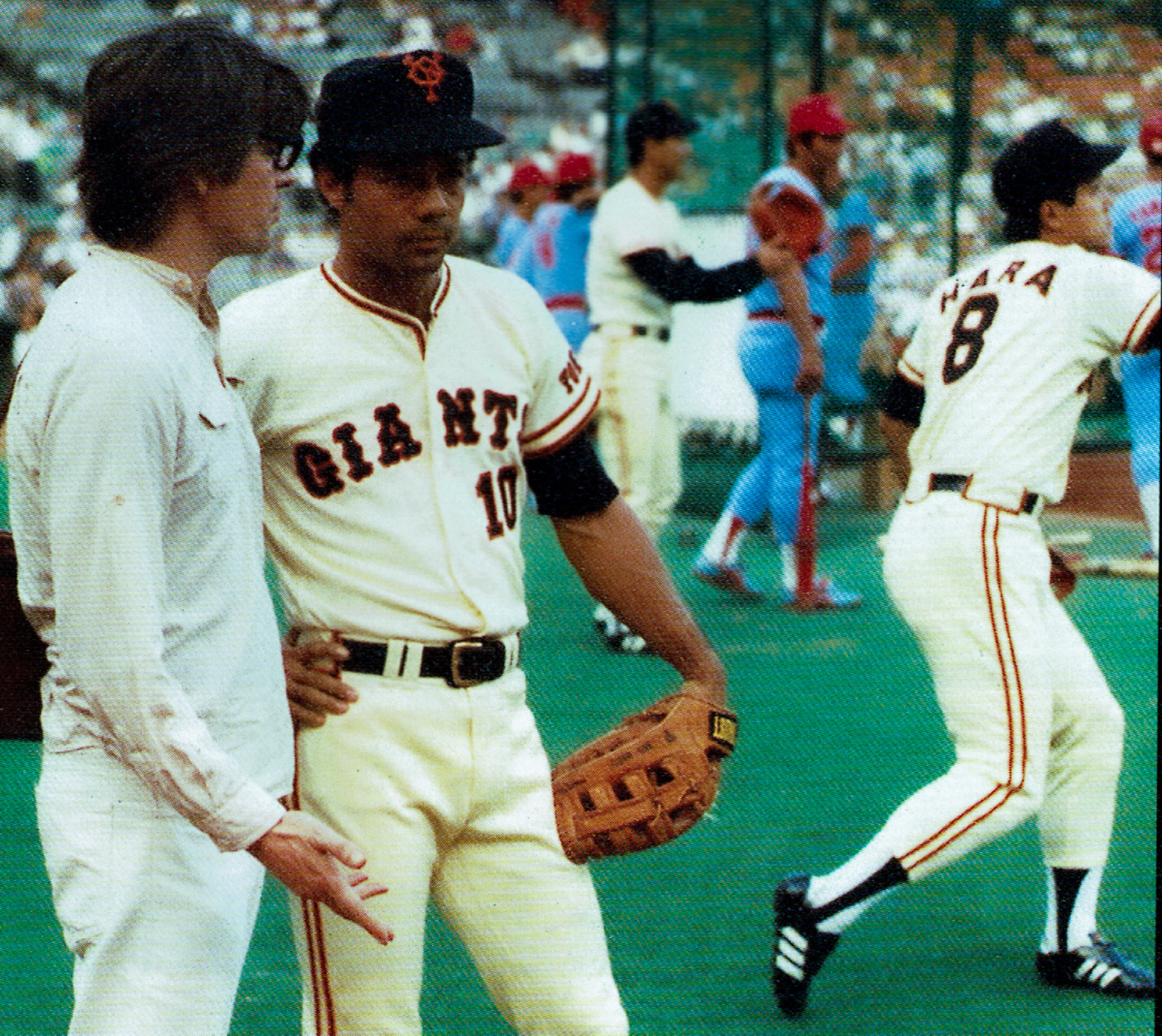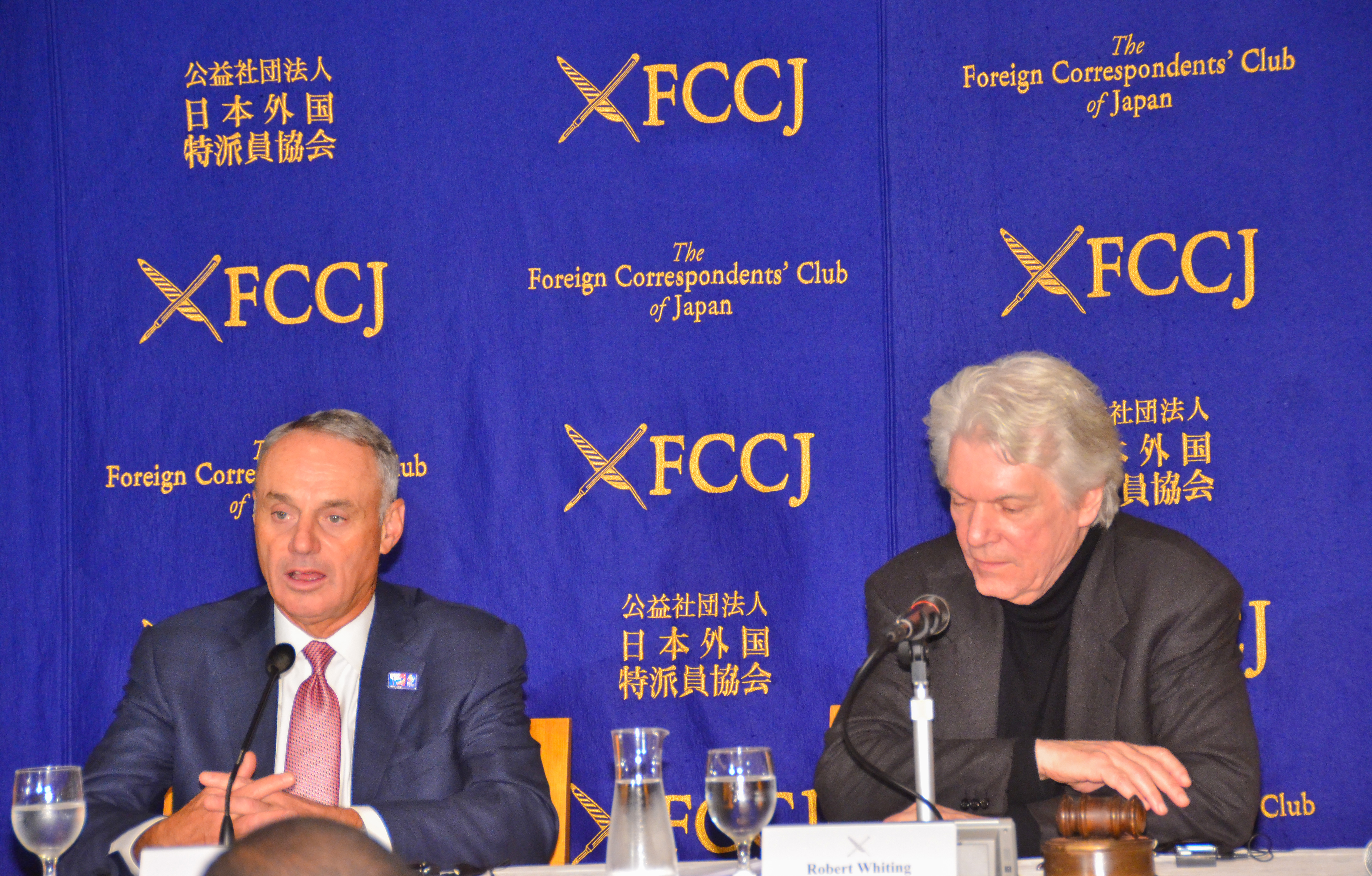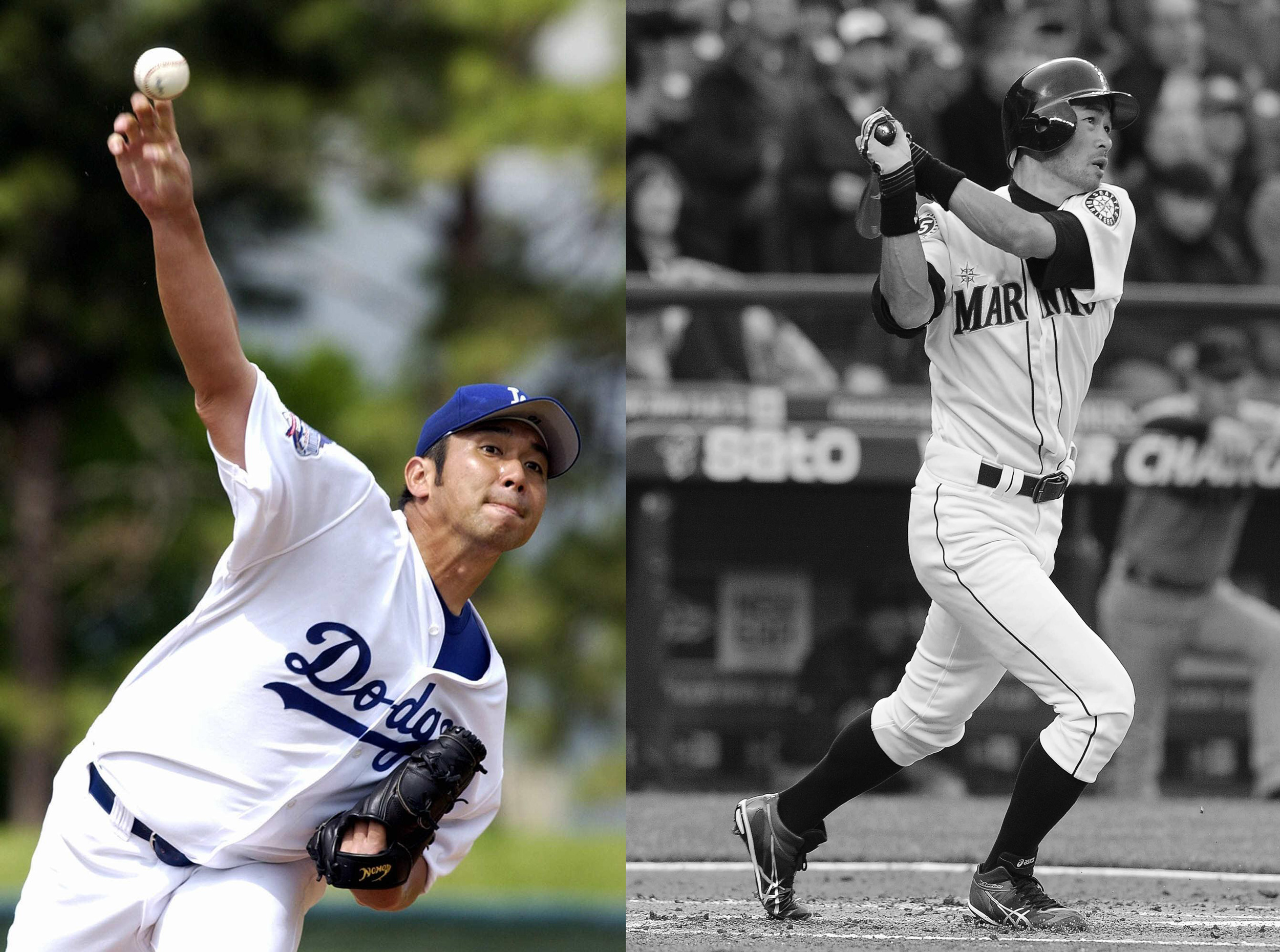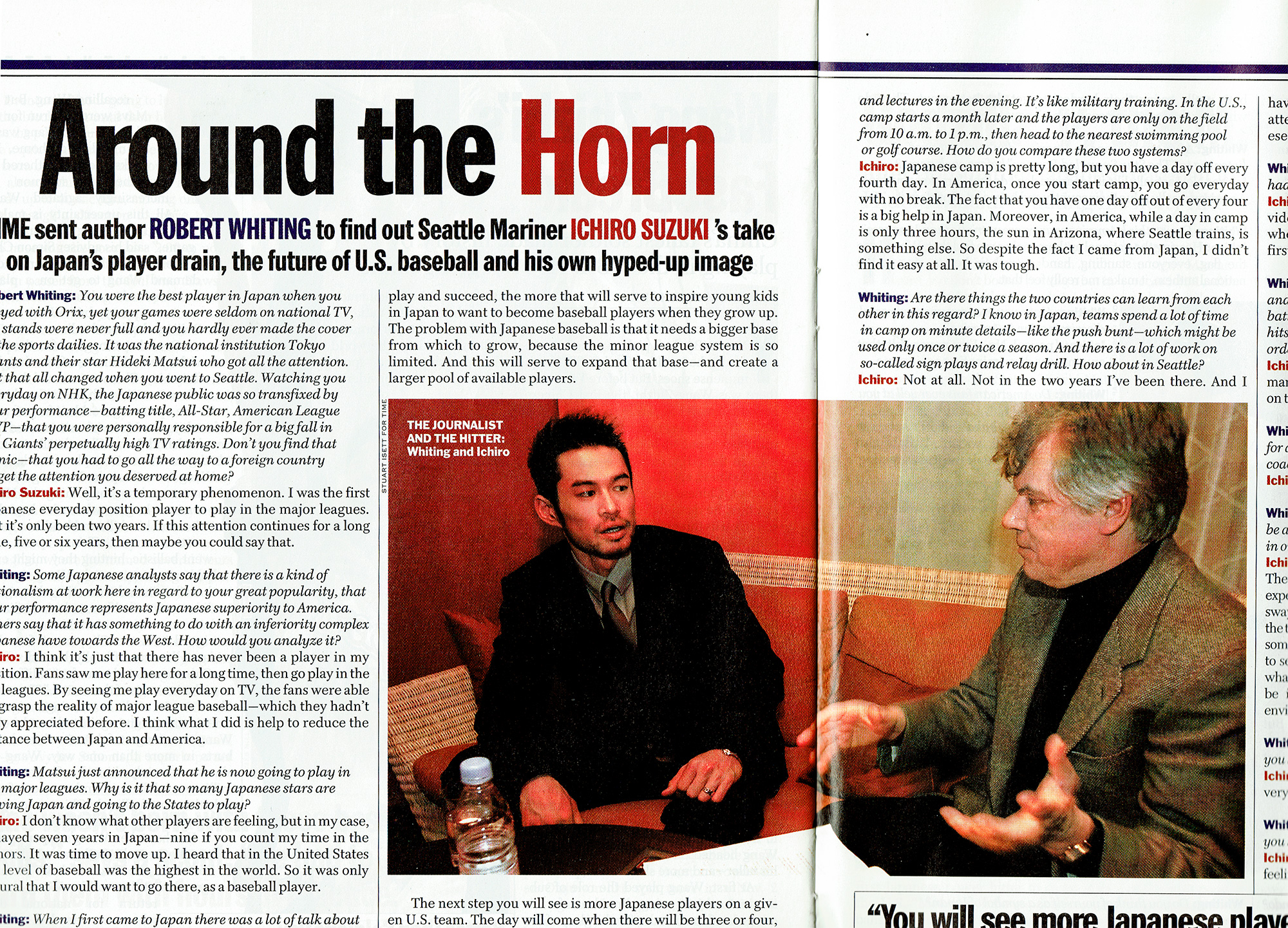Issue:
May 2022
Japanese MLB imports have influenced baseball reporting on both sides of the Pacific

The Japanese have been playing baseball since the late 19th century, when the sport was introduced to prep schools and colleges by visiting American professors. The professional game started in 1936, prompted by a goodwill visit by Babe Ruth and a team of Major League all-stars. The visitors drew a million fans to a parade on the Ginza and obliterated their Japanese competition.
The Japanese have since been trying to catch up to the Americans, with not a great deal of success. Japan was largely a place for washed up MLB players to get one last pay check before retiring. Japanese calls for a Real World Series between Japan and the U.S. were scoffed at in the States, and when Sadaharu Oh surpassed Hank Aaron’s career home run record, in 1977, it was met with some derision by hardcore American fans, despite words of praise from Aaron himself.

People would dismiss Nippon Professional Baseball [NPB] as akin to the Little League.

Things changed when Hideo Nomo exploited a loophole in the longstanding restrictions against Japanese playing abroad and signed with the LA Dodgers in 1995. After initial cries that he was a “traitor,” fans warmed to him when he started winning, igniting "Nomomania” in the U.S. Back in Japan, hordes of fans watched his games on live early-morning TV broadcasts, many of them gathered in front of Jumbotrons outside major commuter hubs.
“Hey, that’s our boy over there, beating those Americans,” people would boast. “Nomo’s impact will be so great as to recast the image of the Japanese people in the American imagination,” The Mainichi Shimbun said. The award-winning journalist Midori Masujima agreed: “No longer would Japanese people be faceless robots who could only make products,” she said.
Even the prime minister at the time, Tomomichi Murayama, declared: “Nomo makes me proud to be Japanese.”

Many other players followed Nomo across the Pacific, including Ichiro Suzuki, who will soon be inducted into the Cooperstown Hall of Fame, and Shohei Ohtani, who burst forth last year with what a Sporting News survey ranked as the greatest single season by any athlete in any sport ever.
Japan’s baseball gold medal in the Olympics, and victories in the World Baseball Classic were given a credibility in the Japanese media they did not really deserve.
Team Japan won gold at Tokyo 2020 because the top 1,000 or so MLB players were prohibited from playing for the American Olympic team. In addition, the much-vaunted WBC is in reality a glorified exhibition. As Bobby Valentine, who managed in Japan as well as in the MLB, said: “If anyone thinks that five or six games in a pre-season exhibition are going to determine the best team in the world then they don’t come from the same baseball world I come from.”
But the fact that the Ohtani is now universally recognized as the best player on the planet has done wonders for the Japanese psyche.
The experiences of Ohtani, Ichiro and the rest have also changed the dynamic in Japan vis-a-vis the U.S. media. NBC News, 60 Minutes, ESPN and other big names have traveled to Japan in recent times just to report adoringly on Japanese baseball. And they have been welcomed with open arms by NPB clubs. This represents a sizeable shift away from their once defensive posture.
I interviewed Warren Cromartie, a star outfielder with the Yomiuri Giants, at the end of the 1986 season. He criticized the club’s excessive training regimen and called front office executives “racist”. Cromartie later had his best season and was given a raise, but I was banned from the Giants new ballpark, Tokyo Dome, for two years as a result of the interview.
In 1991, a TV crew from American wanted to interview former major league player Phil Bradley – another foreign player who was unhappy with the way things were done in Japan. The Giants required the crew to submit their list of questions in advance. The list included:
1. How do you like Japan?
2. How do you like playing Japanese baseball?
3. How do you like playing for the Yomiuri Giants?
4. How do you like playing for your manager?
5. How does your family like living in Japan?
The Giants front office ruled out questions 2, 3, and 4.
Times have changed, somewhat. The experiences of Japanese players in the U.S. have given their fellow countrymen a deeper understanding of the way things are done in the West, while the Americans have a new respect for the Japanese way of playing the game. Friction appears to have subsided. Teams are also smarter about the players they recruit.
Me? I was banned again in 1990 when I reported on the Yomiuri false reporting of attendance figures. Reporters with the Yomiuri Giants press club were compelled to report inflated attendance figures they knew to be incorrect (namely the 56,000 per game capacity number supplied by the team, as opposed to the actual 46,134 figure supplied by the Tokyo Fire Department), presumably so the organization could claim attendance records. This went on for years, from 1987 to 2004, until a new revenue tax law forced club’s owner, The Yomiuri Shimbun, the largest newspaper in the world, to start reporting the truth. There are similar stories about self-censorship in press clubs linked to government ministries – a situation the highly respected veteran journalist Soichiro Tahara recently called the “most serious problem in Japanese journalism”. Reporters and their editors don’t want to lose access, so they play ball, so to speak.
I did not return to Tokyo Dome as a reporter until 2004, when I covered an opening day match between the New York Yankees and the Tampa Bay Rays. I can’t say that I had missed it.
Robert Whiting is a best-selling author and journalist who has written several successful books on sport and contemporary Japanese culture, including You Gotta Have Wa (1989), The Meaning of Ichiro (2004) and Tokyo Junkie (2021).

